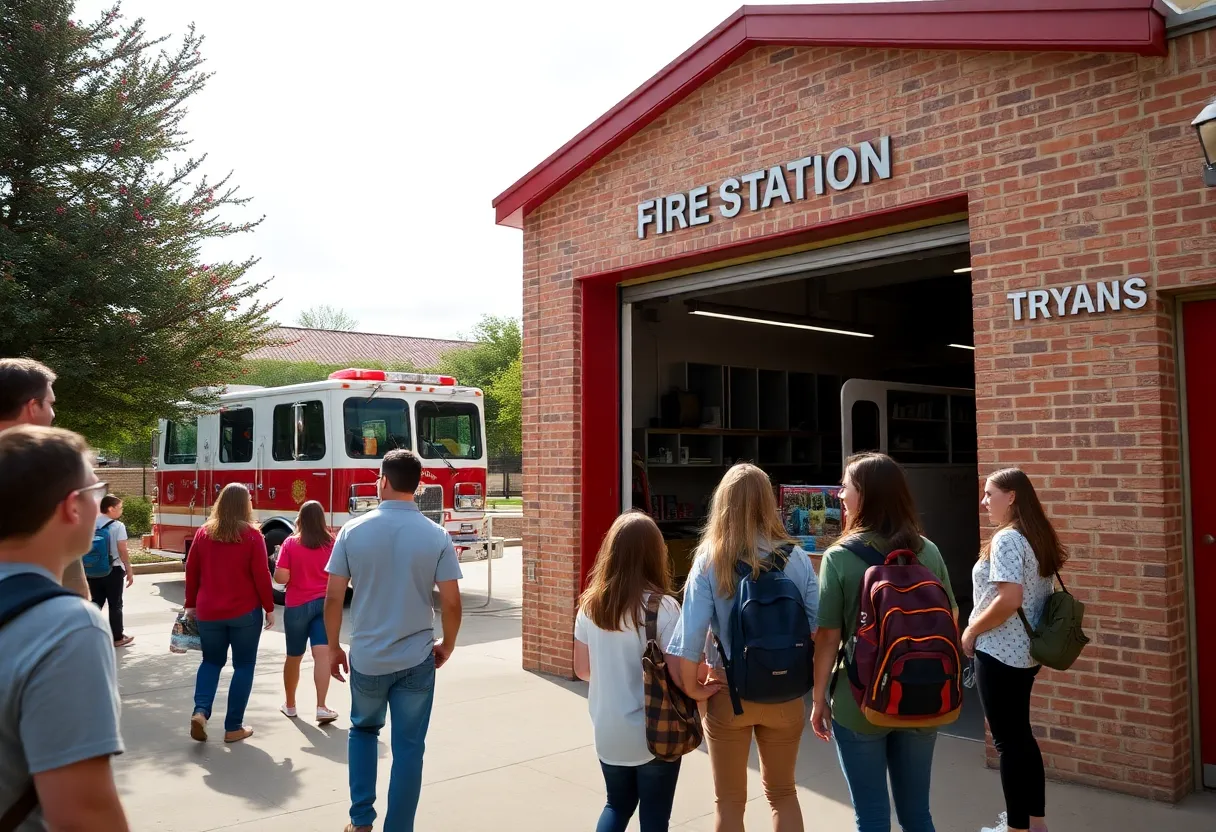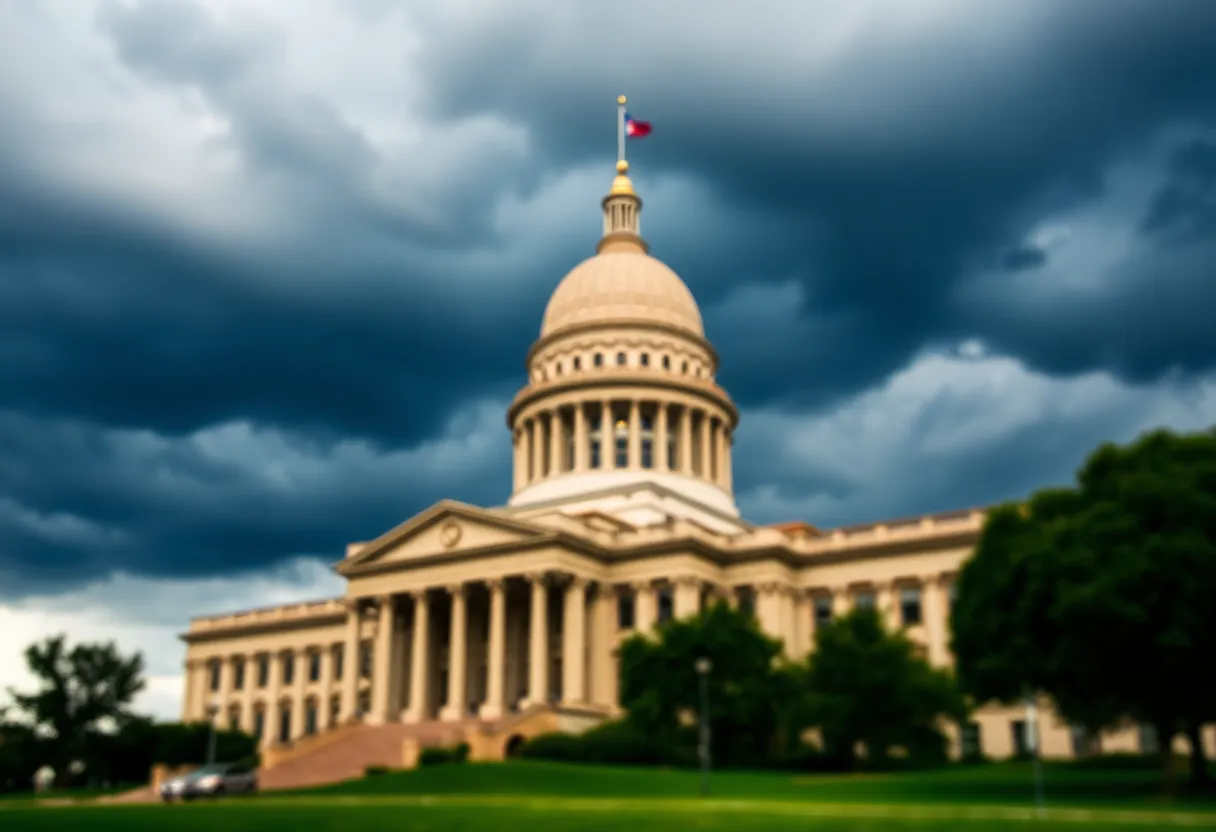News Summary
On April 3, Texas A&M hosted its first-ever debate between Aggie Democrats and College Republicans, focusing on the role of government in education, school vouchers, and social safety nets. Wesley Pokluda and Hayden Hawley represented differing views, delving into the complexities of public education and funding challenges. The debate highlighted the importance of diverse perspectives in political discourse among students concerned about the future of their state’s education system.
Texas A&M Students Face Off in Engaging First Debate on Government and Education
In College Station, Texas, excitement filled the air as the Texas Aggie Democrats and Texas A&M College Republicans faced off in their first-ever debate on April 3. The hot-button topics of the night revolved around the role of government and the contentious issue of school vouchers, which always seem to ignite passionate discussion among students.
Diving into the Debate
The atmosphere was electric as members of both parties took to the stage to present their views and engage in what turned out to be a spirited debate. On one side was Wesley Pokluda, a freshman and member of the College Republicans. He expressed the belief that government should not wield control over individuals’ personal choices, emphasizing that the government’s role should be strictly to safeguard freedoms without stepping into people’s lives.
In contrast, Hayden Hawley, serving as the public relations chair for the Aggie Democrats, acknowledged the importance of government in protecting individual rights, but also highlighted the need for a social safety net. This became a recurring theme as both sides explored how the government can assist individuals while maintaining their freedoms.
Education Under Fire
The debate turned particularly intense when the topic of education arose. Pokluda articulated concerns over the public education system’s decline, citing escalating costs and a notable drop in standardized testing scores since the 1970s. This remark sent the Aggie Democrats into a defensive mode, with Ivan Teter stepping in to argue that many challenges facing education stem not from federal influence but rather state policies.
As the discussion unfolded, Teter raised important points about the potential pitfalls of relying on charity for education funding, warning that such approaches could leave marginalized groups—like LGBTQ+ students—without adequate support. This struck a chord with many who recognize the importance of ensuring that education is accessible for all.
School Vouchers – A Major Point of Contention
Moving on to the second round of questions, the debate veered towards school choice. Both sides had their say, with Hawley challenging the notion that private school vouchers are a viable alternative to public education. His counterpart, Ben Charley from the Aggie Democrats, argued passionately that using school vouchers diverts critical funding away from teachers and vital school districts, calling instead for increased investment in public education.
Harris, representing the College Republicans, argued for the importance of parental choice in the education system while admitting that the current structure might not be yielding effective results. He shared statistics about high satisfaction rates in states like Florida, which would make many curious about the effectiveness of school vouchers.
However, Hawley countered, noting that Texas lacks adequate private school options, making it difficult to determine similar satisfaction levels here. The back-and-forth left audiences engaged and questioning the real impact of these educational policies.
Conclusions Drawn
As the debate wrapped up, both sides expressed gratification over the healthy political dialogue they had fostered. Hawley noted that while the College Republicans presented views that didn’t entirely align with mainstream party positions, it was essential to discuss varying viewpoints. The night highlighted an important takeaway: discussions on political issues are most productive when a range of opinions is presented, making for a more robust discussion.
In the end, it was clear that both the Texas Aggie Democrats and College Republicans care deeply about the future of their state and its education system. As students continue to navigate these complex conversations, one thing remains apparent—politics on campus is worth talking about, and students are eager to engage in the debate.
Deeper Dive: News & Info About This Topic
HERE Resources
College Student Arrested for Disliking Broccoli Sparks Protests
Weather Concerns Over Texas A&M Aggie Ring Days
Brazos County Legislative Session Begins with Focus on Key Issues
Drag Shows Return to College Station After Legal Ruling
Bryan ISD Launches Strategic Planning Committee for Growth
Debate in College Station Focuses on Trump’s First 60 Days
College Station Council Members Challenge State Housing Bills
Texas A&M Students Rally with Prayer During Draggieland Show
College Station’s Housing Ordinance Faces Legislative Review
Texas A&M University Supports LGBTQ Student Group in Court Ruling
Additional Resources
- The Battalion: Aggie Democrats & College Republicans Debate
- Wikipedia: School Voucher
- KBTX: Texas A&M Political Expert Talks VP Debate
- Google Search: Government Role in Education
- The Battalion: Proposed Bill Causing Divide in SGA
- Google Scholar: Texas Education Policy
- KBTX: What to Expect 89th Texas Legislative Session
- Encyclopedia Britannica: US Education System
- ABC News 4: Greg Abbott Threatens Texas A&M President
- Google News: Texas School Choice







